#Royal Victoria Infirmary
Explore tagged Tumblr posts
Text
Excellence
Having lived for a while in the South of France I think I know a good Bouillabaisse when I come across it. It’s tricky to make.
Having lived for a while in the South of France I think I know a good Bouillabaisse when I come across it. It’s tricky to make. It needs subtle things like leeks and orange peel. Pernod and saffron, as well as a good mix of fresh fish. There’s a little trick they use, adding a potato or two for thickening and as an indicator, the broth is cooked. I must say I didn’t expect to find it as well…

View On WordPress
0 notes
Text
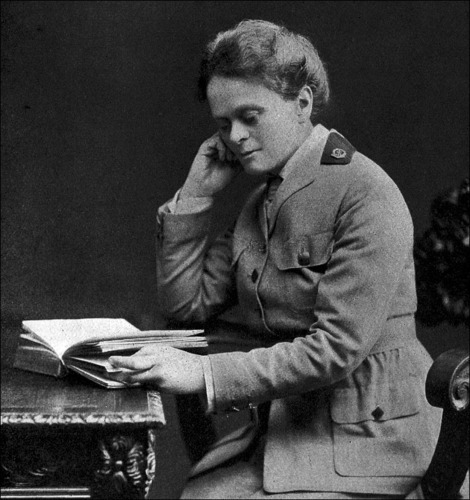
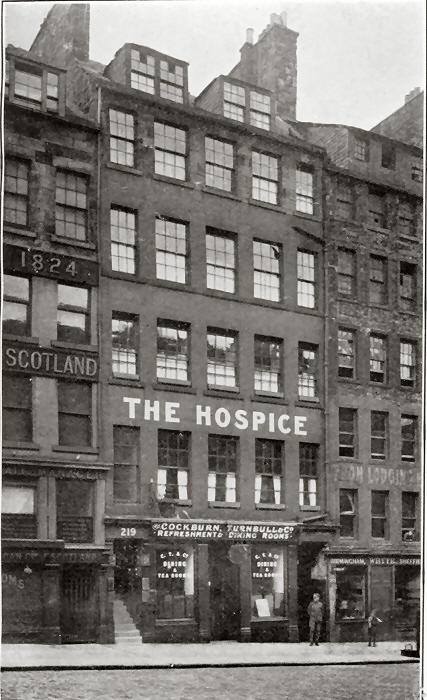
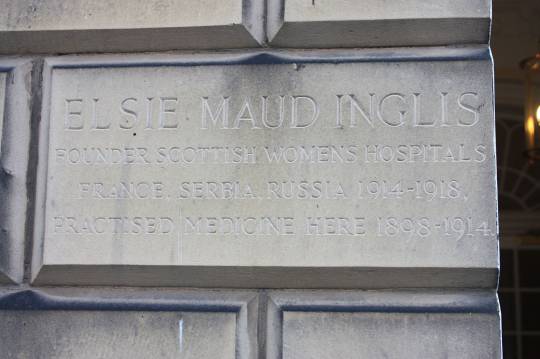
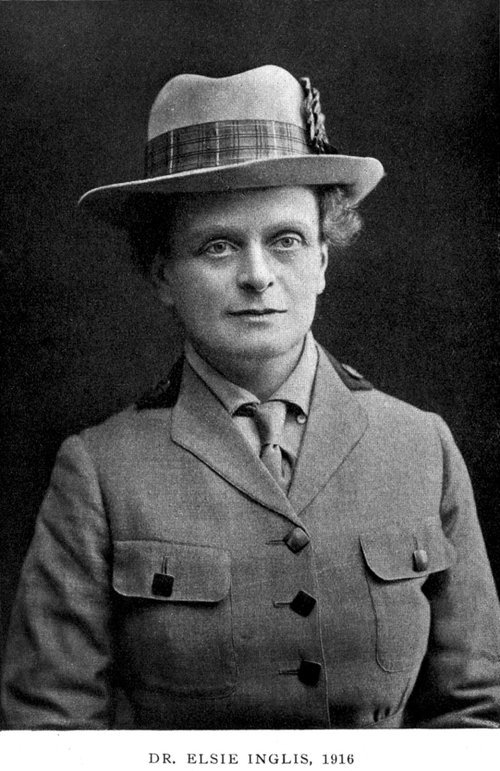
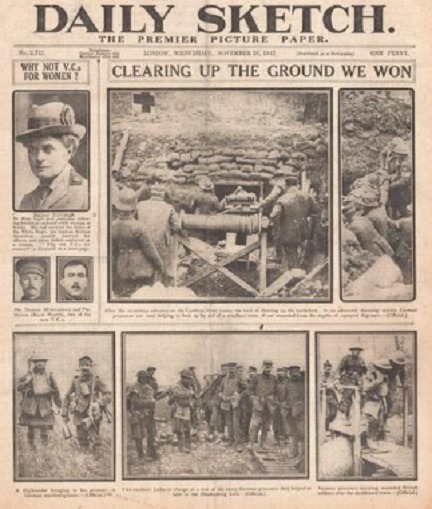
On 26th November 1917 Elsie Inglis, the Scottish doctor, nursing pioneer and suffragette, died.
Every Scot out there should read this with pride, Elsie Inglis and the other Scottish doctors and nurses faced prejudice and the horrors of war, but they did not flinch in what they saw as their duty.
Born in India in 1864, she was the daughter of John Inglis, a chief commissioner in the Indian civil service. She studied medicine at Dr Sophia Jex-Blake’s newly opened Edinburgh School of Medicine for Women and was one of the first women in Scotland to finish higher education, although she was not allowed to graduate. She went on to complete her training under Sir William Macewen at the Glasgow Royal Infirmary.
On the outbreak of WWI Elsie approached the War Office with the idea of either women-doctors co-operating with the Royal Army Medical Corps, or women's medical units being allowed to serve on the Western Front. The authorities were less than helpful and it is reported that an official said to her "My good lady, go home and sit still".
Despite attempts to repress her efforts—and those of many other women—to contribute, Elsie did not “sit still”. Instead, she persevered, setting up the Scottish women’s hospitals, which were all-female units that played a vital role with Britain’s allies, including the French, the Belgians and, particularly, the Serbs.
Elsie was 50 when war broke out and she defied British Government advice by setting up field hospitals close to the frontlines. She travelled to France within three months of the outbreak of war, and the all female staffed, Abbaye de Royaumont hospital, containing some 200 beds, was in place by the end of 1914. That was followed by a second hospital, at Villers Cotterets, in 1917. Tens of thousands were helped by the hospitals she set up in France, Serbia, Ukraine and Romania, acting with the support of the French and Serbian Governments.
Prior to that, Elsie was a strong advocate of women’s rights and a leading member of the suffragette movement in Scotland, playing a notable role in the establishment of the Scottish women’s suffrage federation in 1906. She fought energetically against prejudice and for the social and political emancipation of women, and had already made a huge impact in Edinburgh by working in some of the poorest parts of the city with women and babies who were in desperate need of help. Selflessly, she often waived the fees of patients who could not afford to pay.
Politically, Elsie was a staunch campaigner for votes for women, and her involvement in the suffragette movement prompted her to raise money to send out to female doctors, nurses, orderlies and drivers on the frontline. She recorded many great achievements, including setting up 14 hospitals during the war—staffed by 1,500 Scottish women, all volunteers. Most notably, Elsie raised the equivalent of £53 million in today’s money to fund greatly needed medical care for those on the frontline. Her efforts reached across the waters on another level, attracting volunteers from New Zealand, Australia and Canada. As I am sure everyone would agree, that showed fierce independence and capability from women who were well ahead of their time.
By 1917 Inglis knew she had cancer, and by the end of September was unable to work as a surgeon she sent a telegraph home saying, ‘Everything satisfactory and all well except me.’ Inglis and her unit landed in Newcastle and the following day, 26 November 1917, in the presence of her sisters, Inglis died.
In Edinburgh the response was huge and the streets were lined with people as her body was returned to the city. While there was no Victoria Cross for her at home, in Serbia she was the only woman to receive the Order of the White Eagle and is remembered by the nation every year in a ceremony at the memorial fountain built in her honour.
Before her body was interned in Dean Cemetery, Inglis’s body lay in state in St Giles’ Cathedral. The SWH continued its work for the duration of the war, sending out more units and raising money for the work. Remaining funds were used to establish the Elsie Inglis Memorial Maternity Hospital in Edinburgh in July 1925.
Pics are of Elsie, the "Hospice" on the Royal Mile, not a hospice in today's sense of the word, it was a maternity hospital set up in 1904 run exclusively by women, The Elsie Inglis Maternity hospital at Abbey Hill replaced this in 1925, the third pic is an engraving at Walker Street Edinburgh, where she had a surgery.
There has been talk of erecting a statue of Elsie, in my opinion she certainly deserves, there are too few statues honouring strong women like her, you can find details on the link below.
21 notes
·
View notes
Text
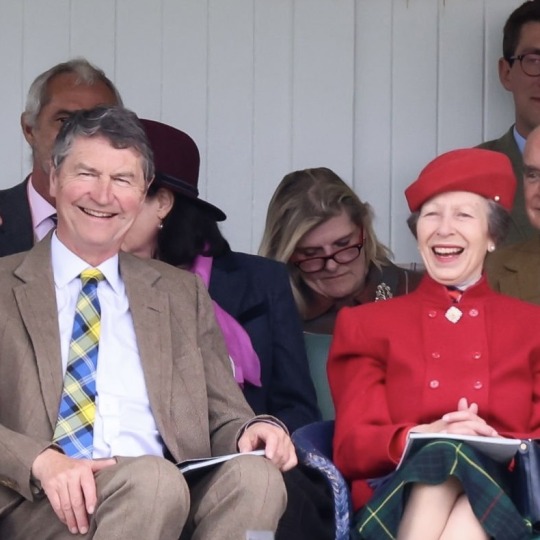
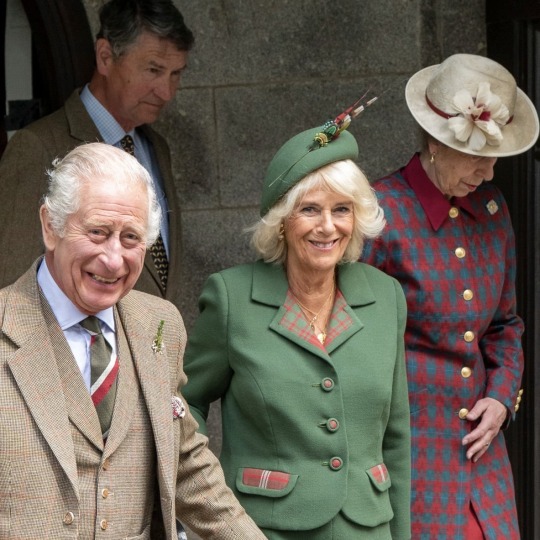
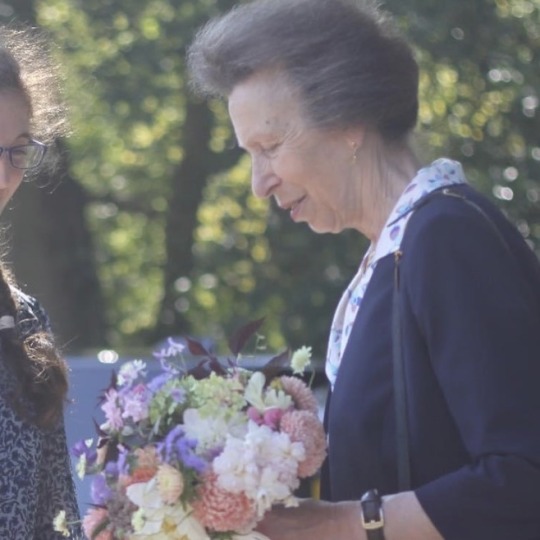
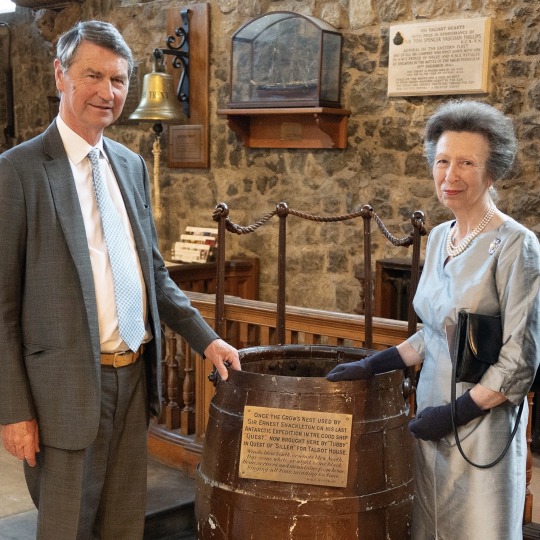

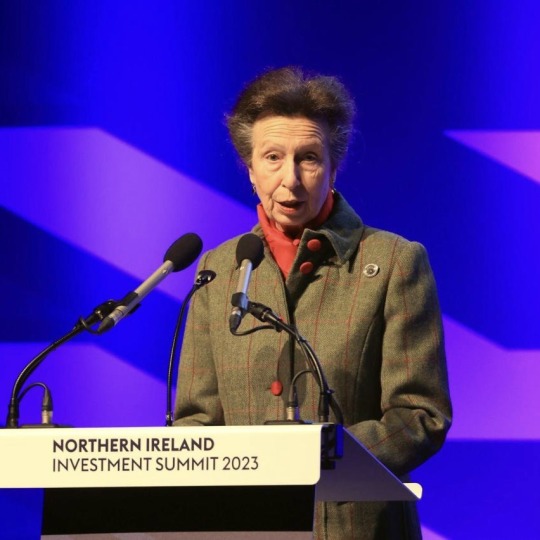
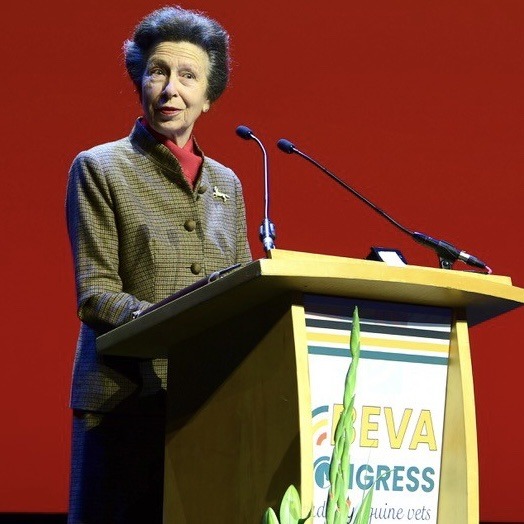

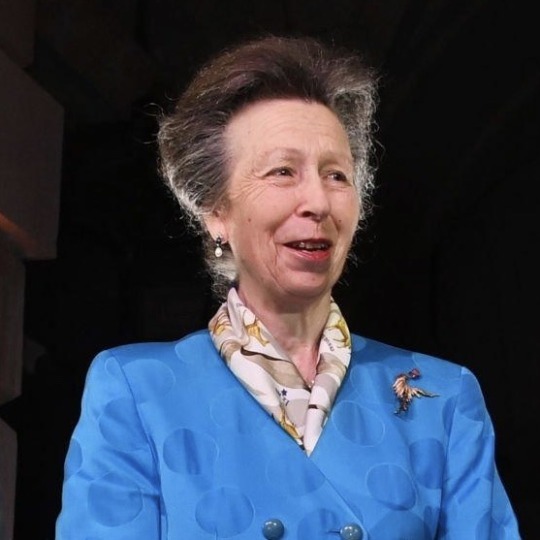
The Princess Royal’s Official Engagements in September 2023
02/09 The King and Queen, Princess Anne and Sir Tim attended the Braemar Gathering at the Princess Royal and Duke of Fife Memorial Park. 🏴
03/09 (not counted) The King, Queen, Princess Anne, Sir Tim, PM Rishi Sunak and Akshata Murphy attended the Divine Service at Crathie Kirk Church. ⛪️🏴
06/09 (unofficial) Princess Anne, along with the Prince and Princess of Wales recorded a special episode of the Good, the Bad and the Rugby, with Mike Tindall, James Haskell and Alex Payne at Windsor Castle. 🏉
07/09 As President of the Riding for the Disabled Association, visited Digswell Place Group, Digswell Place Stables, Welwyn Garden City, to mark its 50th Anniversary. 🐎
As President of UK Fashion and Textile Association, visited MAES London Womenswear Manufacturer. 👗
Sir Tim represented Princess Anne at a Service of Thanksgiving for Sir Matthew Farrer (former Solicitor to the Late Queen) at St Magnus-The-Martyr Church in London. ⛪️
As Patron of the South Georgia Heritage Trust Princess Anne and Sir Tim, attended the Return of Sir Ernest Shackleton’s Quest Crow’s Nest Service at All Hallows by the Tower, followed by a Dinner at Trinity House. 🗺️🍽️
08/09 Participated in a Meeting via video link in her role of Chairman of the International Olympic Committee Members Election Commission. 🎥💻
11/09 At Gatcombe Park;
Presented The Princess Royal Award and Royal Dairy Innovation Award. 🏆
Held a Management Team Meeting for the Chaffinch Trust. 💼
Held a Management Team Meeting for Give Them a Sporting Chance. ��
12/09 As Patron of the Boston Stump Restoration and Development Appeal, visited completed restoration work at St Botolph's Church in Boston, Lincolnshire. ⛪️
As Patron of Magpas Air Ambulance Capital Campaign, opened a new Air Base at Alconbury Weald. 🚁
As Patron of Maritime UK, attended the London International Shipping Week Tenth Anniversary Reception at Mansion House. 🚢
13/09 In Northern Ireland Princess Anne;
Attended the Department for Business and Trade’s Northern Ireland Business Summit at the International Conference Centre Belfast. 💼
As Patron of the International Sheep Dog Society, lattended the World Sheep Dog Trials at Gill Hall Estate, Dromore. 🐑🐶
Unveiled a Royal British Legion Community Bench in Dromore Square, Dromore. 🌹
Attended the Department for Business and Trade’s Northern Ireland Business Summit Reception at Hillsborough Castle. 👔🇮🇪
14/09 Attended the British Equine Veterinary Association 2023 Congress at the International Convention Centre in Birmingham. 🩺🐴
As Patron of the Butler Trust visited Stonnall Road Approved Premises in Walsall. 🏠
Opened the Firefly Woods at Dorothy House Hospice, Winsley House. She unveiled a firefly dedicated to her late parents. 💡
15/09 As Patron of the Restorative Justice Council, opened the Restorative Justice Council Inaugural Northern Ireland Conference in Belfast, Northern Ireland. 🇮🇪⚖️
As Chancellor of the University of the Highlands and Islands, attended the North, West and Hebrides Annual Graduation Ceremony and Celebration of Success and Achievement at St Peter’s and St Andrew’s Church, Thurso. 🏴🎓
18/09 The Princess Royal, As Guardian of Give Them A Sporting Chance, visited the Rivertime Boat Trust at the River and Rowing Museum in Henley on Thames. 🦽🚣♀️
As Patron of the National Transport Trust, attended the Annual Awards Ceremony at Fawley Hill Transport Museum, Henley-on-Thames. 🚂🥇
19/09 Visited the Our Cow Molly icecream parlour and dairy farm at Cliffe House Farm, Dungworth, Sheffield. 🍦🐮
Launched the Ethel Trust Community Barge PEARL at Victoria Quays and attended a Reception at the Quays Hotel Sheffield. 🚤
As Patron of the Royal College of Midwives, visited Doncaster Royal Infirmary Women’s and Children’s Hospital. 👶🤰
20/09 As Patron of Police Treatment Centres, visited the St Andrews Centre in Harrogate. 👮♀️
Visited Claro Enterprises Community Workshop, Harrogate, to mark its 30th anniversary. 🎂
Visited Woods of Harrogate Limited Fine Linens Company in Harrogate. 🧖♀️
Visited Hollybank Trust Care Centre, in Mirfield, to mark its 70th Anniversary. 🩺
21/09 Visited Jaguar Land Rover Halewood Vehicle Plant to mark the 60th anniversary of its opening in Liverpool. 🚙
As President of the British Olympic Association, attended an Executive Board Meeting in London W1. 💼
22/09 With Sir Tim opened the Aberdeen South Harbour Expansion Project at the Port of Aberdeen. ⛴️
26/09 Held an Investiture ceremony at Windsor Castle. 🎖️
Opened the renovated Old War Office Building, Whitehall in London. 🏢
Attended the Royal Warrant Holders Association’s President’s Reception at Westminster Abbey. 📑🍾
As Patron of Mercy Ships International, attended a 45th Anniversary Dinner onboard The Elizabethan, sailing on the River Thames. 🛥️🍽️
27/09 Held two Investiture ceremonies at Windsor Castle. 🎖️
As President of World Horse Welfare, attended a Reception at Hyde Park Barracks, Knightsbridge, London. 🐎
As Patron of Opportunity International UK, attended a Dinner at Evercore in London. 🌍
28/09 As President of the UK Fashion and Textile Association, attended the Sustainability in UK Textiles Conference at Drapers’ Hall, London. 👗
As Founders’ Patron and President, of the Benenden School & Society, attended the Centenary Global Conference “Inspiring Future Female Leaders”, opened the Seniors’ Courtyard, launched “Benenden 100” Centenary Book and attended the Benenden Society Reception at Benenden School in Kent. 🏫
29/09 Attended the Rededication Service of Southport War Memorial. 🫡
Total official engagements for Anne in July: 47
2023 total so far: 353
Total official engagements accompanied by Tim in July: 5
2023 total so far: 75
#hardest working royal 🫡#no choice but to stanne#this is based on the court circular#september 2023#and yes i’m doing a separate count for tim too#because i’m rooting for…#operation working royal tim#STILL WAITING CHARLES#not all engagements are on this post#if you want a full list plz dm me#princess anne#princess royal#tim laurence#timothy laurence
50 notes
·
View notes
Text
Receptionist / Clerical Officer
We are unable to offer sponsorship for this post. We are looking for a highly motivated Receptionist/Clerical Officer to work within the Radiology Department at the Royal Victoria Infirmary. Working under the supervision of the Radiology … Apply Now
0 notes
Text
Social Worker (Hospitals)
Newcastle City Council are seeking to recruit 3 Social Workers in the Royal Victoria Infirmary and Freeman Hospital Contract Type: Permanent | Working Pattern: Full time | Salary: £33,945 - £37,336 per annum (unprogressed) £38,223 - £42,403 per annum (progessed) | Advert End Date: 09/02/2024 22:59 | http://dlvr.it/T1vzmG
0 notes
Text
A Sustainable Choice: The Environmental Benefits of Leicester Taxis

In an era where environmental consciousness is on the rise, individuals are seeking sustainable transportation options that minimize their carbon footprint. Leicester taxis are emerging as a sustainable choice for commuting and travel within the city.
About The Leicester City:
Leicester boasts a sizable covered outdoor market, which has been a fixture in the city for an impressive 700 years. In addition to this historic market, Leicester is home to two notable shopping centers: Haymarket and the larger Highcross. The city prides itself on its diverse range of museums, with the renowned New Walk Museum being the largest and most well-known. Leicester also offers residents and visitors numerous parks, including Abbey Park, Victoria Park, and a botanical garden in the neighboring town of Oadby.
For those interested in horse racing, Leicester also features a racecourse in Oadby. Regarding healthcare facilities, the city accommodates two hospitals within its borders, namely Leicester General Hospital and Leicester Royal Infirmary, with Glenfield Hospital located just outside the city.
Reducing Traffic Congestion and Emissions:
Discuss how Leicester taxis help alleviate traffic congestion by providing shared rides and reducing the number of private vehicles on the road.
Explain how fewer vehicles result in reduced emissions, improving air quality and mitigating the impact of vehicle pollution on the environment.
Efficient Route Planning and Navigation:
Highlight how Leicester taxi drivers are skilled in efficient route planning, utilizing technology and local knowledge to choose the most direct and traffic-free paths.
Explain how optimized routes lead to reduced travel distances, saving fuel and minimizing carbon emissions.
Encouraging Carpooling and Shared Rides:
Discuss the role of Taxis Leicester services in promoting carpooling and shared rides, allowing multiple passengers with similar destinations to travel together.
Highlight how shared rides reduce the number of vehicles on the road, easing traffic congestion and reducing carbon emissions per passenger.
Potential for Electric and Hybrid Taxis:
Explore the possibility of electric and hybrid taxis in Leicester, emphasizing their low or zero emissions and reduced dependency on fossil fuels.
Discuss initiatives by taxi companies to introduce environmentally friendly vehicles into their fleets, contributing to a greener transport sector.
Improved Fuel Efficiency:
Highlight technological advancements that enable modern Leicester taxis to have better fuel efficiency, reducing their carbon footprint.
Discuss the importance of regular vehicle maintenance and upgrades to optimize fuel efficiency and minimize emissions.
Enhancing Public Transportation Integration:
Explain how Leicester taxi services complement public transportation networks, providing last-mile connectivity to individuals needing more convenient access to bus or train stations.
Discuss the role of taxis in reducing the need for private vehicles, particularly in areas with limited public transportation options.
Minimizing the Need for Parking:
Highlight how Leicester taxis eliminate the need for individuals to search for parking spaces, reducing the demand for parking infrastructure and freeing up valuable urban space.
Discuss the environmental implications of reduced parking requirements, such as decreased urban heat island effect and increased green spaces.
Supporting Local Economy and Community:
Emphasize how supporting local taxi services in Leicester contributes to the growth of the local economy and helps sustain jobs within the community.
Discuss the positive social and economic impacts of utilizing environmentally conscious taxi services, promoting sustainability at both individual and community levels.
If You are traveling From Leicester to Birmingham Airport, Leicester taxis offer a sustainable transportation option that aligns with the growing environmental consciousness of individuals. By reducing traffic congestion, minimizing emissions, promoting shared rides, and exploring electric and hybrid vehicles, Leicester taxis contribute to a greener future. By choosing taxis as a mode of transportation, individuals can actively participate in creating a more sustainable and environmentally friendly city. Embracing Leicester taxis benefits the environment, supports the local economy, and fosters a sense of community.
#Leicester Taxi#taxi Leicester#Cheap taxi Leciester#Taxi In Leicester#Leicester Taxis#Leicester Airport taxi#Local Leicester taxi#Taxis Leicester#Taxi Near me In Leicester.
0 notes
Photo

Motorist admits running over and seriously injuring man on residential Carlisle road A MOTORIST has admitted running over a pedestrian on a residential Carlisle street and causing his victim terrible injuries. Full story: https://www.cumbriacrack.com/2020/09/21/motorist-admits-running-over-and-seriously-injuring-man-on-residential-carlisle-road/
0 notes
Text

Born on 17 March 1938 in Ballycastle, United Kingdom, Keith Michael Patrick Cardinal O'Brien was a senior-ranking Catholic prelate in Scotland. He was the Archbishop of Saint Andrews and Edinburgh from 1985 to 2013. He died on 19 March 2018 in Royal Victoria Infirmary, Newcastle upon Tyne, United Kingdom.





63 notes
·
View notes
Photo


On New Year’s Eve of 2017, 29-year-old Ashley Cochrane was out celebrating the festivities in The Lord Clyde on Shields Road, Byker, Newcastle. At around 9:30PM, he left the pub to meet his friend, Robert Martin, at Catherine House, a nearby hostel where Martin was living. Like most people on New Year’s Eve, all Cochrane wanted to do was have a few drinks and spend time with his friends.
When Martin arrived at the hostel a few hours later after finishing his shift at a local pub, it was evident that his room had been broken into; it was in disarray and had been ransacked. As Martin started to dial the police, he was punched in the face by a man who appeared from another room. Martin ran back to the pub where he worked and told his manager, Douglas Nicholson, what had happened. The two men walked back to Catherine House to investigate.
As Martin and Nicholson made their way through the hall, they noticed that other rooms had been broken into and robbed. As they approached Martin’s room, they heard groaning coming from the empty room next door. As they pushed open the door, they were met with a gruesome sight: lying in a puddle of blood was Ashley Cochrane. His face was so disfigured that Martin didn’t even recognise him. “I tried asking his name. I couldn’t understand because he was choking on his own blood.” Cochrane was rushed to the Newcastle Royal Victoria Infirmary but was pronounced dead on arrival.
As it transpired, Cochrane had been waiting in his friend’s room when Sean Histon and George Dixon broke in. The two men were on a mission to steal to fund their cravings for crack cocaine. They tried to get Cochrane’s bank details out of him but when he refused, he was subjected to a brutal onslaught. He was beaten, stamped on, stabbed and had his head shoved through a plasterboard wall. After the brutal attack, Histon and Dixon smiled for the above selfie, giving no clue about the grotesque violence they had just inflicted on an innocent man. The first minutes of 2018 was Cochrane’s last minutes on earth and they were spent in pain and afraid.
Sean Histon was sentenced to life with a minimum term of 30 years for murder while George Dixon was as sentenced to 17 years for manslaughter. A third man accused of the attack, Lee Annis, died in jail while awaiting trial.
110 notes
·
View notes
Link
“BBC presenter Lisa Shaw died due to complications from the AstraZeneca vaccine, a coroner concluded today in what is believed to be the first time a Covid jab has officially been ruled the underlying cause of death in the UK.
The otherwise healthy 44-year-old, who worked for BBC Radio Newcastle, died in May after developing headaches following her first dose of the British-made vaccine.
Coroner Karen Dilks heard Ms Shaw suffered from blood clots in her brain which caused a deadly stroke. She passed away at the Royal Victoria Infirmary in Newcastle three weeks after the injection.”
1 note
·
View note
Text
RIP Lisa
BBC radio presenter died after suffering blood clots following AstraZeneca vaccine, family says.
Lisa Shaw died at the Royal Victoria Infirmary, Newcastle, on Friday.
An award-winning BBC radio presenter died in hospital after she suffered blood clots after receiving the AstraZeneca vaccine, her devastated family has said.
Lisa Shaw, who worked for BBC Newcastle, developed “severe” headaches a week after having the jab and fell seriously ill a few days later, relatives said in a statement.
The 44-year-old died at the Royal Victoria Infirmary, Newcastle, on Friday afternoon having been treated in intensive care for blood clots and bleeding.
@from the London Evening Standard
#understanding serious risks about mRNA COVID-19 vaccines#please search a right inform about this experimental vaccine
2 notes
·
View notes
Text
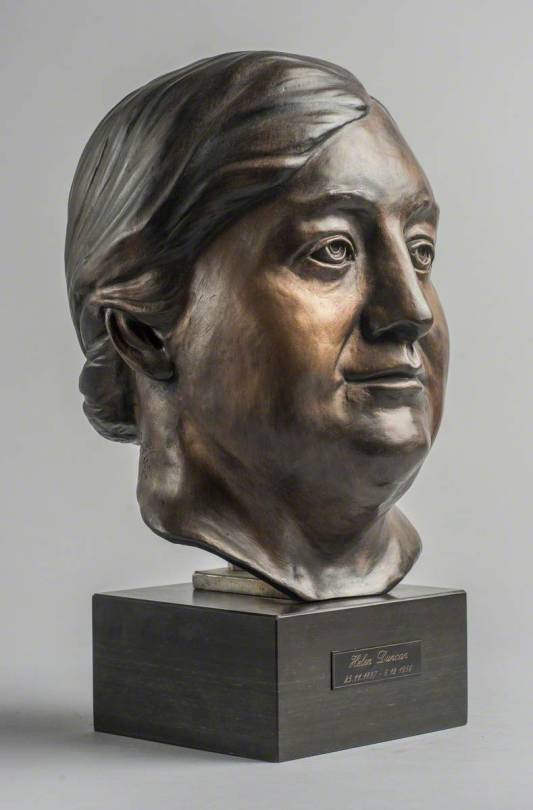

Victoria Helen McCrae Duncan was born on November 25th 1897 in Callander.
Known as Helen Duncan, in 1944, she became last person in the UK to be tried, convicted and imprisoned under the 1735 Witchcraft Act.
Hellish Nell, as she became known, was actually a medium, and by all accounts not a very good one, the way she earned her living was to hold seances and charge plenty for her services, but she was rumbled several times as a fraud.
Nor was she the last person convicted under the 1753 Act – now repealed and replaced with the Fraudulent Mediums Act of 1951 – because in fact three other people were on trial alongside her and one of them was sent to prison, too. Yet somehow the “last witch” nickname has stuck, though records clearly show that some months after her trial and imprisonment in September 1944, one Jane York, 72, from Forest Gate, East London, was charged under the same act with seven counts of pretending to conjure up spirits of the dead. Incredibly, York was simply bound over for the sum of £5 to be of good behaviour for three years.
Ah, but that happened after D-Day, and there is no question when you examine the evidence that the authorities wanted to make an example of Helen Duncan and put her away for the summer of 1944.
From an early age her own family saw her as fey, and her mother was mortified when the child’s behaviour became impossible – she would predict doom and destruction for all sorts of people and was given to outbursts of hysteria.
Her early life was otherwise normal. She moved to Dundee and worked at the Royal Infirmary where she met Henry Edward Duncan, a wounded war veteran and a cabinet maker. They were married in 1916, and Duncan would eventually have six children by Henry who saw a great way of making money from his wife’s talents in clairvoyance – she read tea leaves and made predictions and earned a few shillings for doing so.
By 1926 she had become a fully-fledged medium giving seances during a time when spiritualism was all the rage. Moving to Edinburgh, her seances were soon the talk of the town – even the ghost of that local man turned Sherlock Holmes creator, Sir Arthur Conan Doyle, a great believer in spiritualism, was said to have materialised at sittings.
A prominent feature of her seances was her apparent ability to produce “ectoplasm” from her mouth during her trances when she was transformed into her spirit partners Albert or Peggy, a young girl whose voices “spoke” through Duncan. She had grown quite obese and the contrast between this 20-stone woman and the childish voices was part of the reason why people believed in her.
It was at a seance in January 1933 that Peggy emerged in the seance room and a sitter named Esson Maule grabbed her. The lights were turned on and the spirit was revealed to be made of a cloth undervest which used as evidence that led to Duncan’s conviction on the Scottish offence of fraud at Edinburgh Sheriff Court in May 1933.
The conviction does not seem to have harmed her career. Duncan was by then making a good living by conducting seances throughout Britain at which “the spirits of the dead were alleged to have appeared, sometimes talking to and even touching their relatives”.
Duncan began to get more famous but also began to be more scrutinized. Director Harry Price of the National Laboratory of Psychical Research examined her. He deemed her ‘ectoplasms’ to be made of cheese and eggs which she would regurgitate up. Price was less than impressed by what he felt was a show woman, exploiting people for money.
“Could anything be more infantile than a group of grown-up men wasting time, money, and energy on the antics of a fat female crook.”
During World War Two, Duncan lived in Portsmouth, the home of the Royal Navy. In 1941, the spirit of a sailor reportedly appeared at one of her seancés announcing that he had just gone down on a vessel called the Barham. HMS 'Barham' was not officially declared lost until several months later, its sinking having been kept secret to mislead the enemy and protect morale.
Unsurprisingly, Duncan's activities attracted the attention of the authorities and on 19 January 1944, one of her séances was interrupted by a police raid during which she and three members of her audience were arrested.
Duncan was remanded in custody by Portsmouth magistrates. She was originally charged under section 4 of the Vagrancy Act (1824), under which most charges relating to fortune-telling, astrology and spiritualism were prosecuted by magistrates in the 20th century. This was considered a relatively petty charge and usually resulted in a fine if proved. She was eventually tried by jury at the Old Bailey for contravening section 4 of the Witchcraft Act of 1735, which carried the heavier potential penalty of a prison sentence.
In particular, the medium and her three sitters were accused of pretending 'to exercise or use human conjuration that through the agency of Helen Duncan spirits of deceased persons should appear to be present'. Duncan was also charged with offences under the Larceny Act for taking money 'by falsely pretending that she was in a position to bring about the appearances of the spirits of deceased persons'.
The trial caused a media sensation and was extensively covered in the newspapers, many of which revelled in printing cartoons of witches on broomsticks. At one stage, the defence announced that Duncan was prepared to demonstrate her abilities in the witness box. This amounted to conducting a séance in the court while in a state of trance and the offer was refused.
Duncan was found guilty as charged under the Witchcraft Act and sentenced to nine months in Holloway Prison, London, but she was cleared of the other offences. She was the last person in Britain to be jailed under the act, which was repealed in 1951 and replaced with the Fraudulent Mediums Act following a campaign by spiritualist and member of parliament Thomas Brooks.
There are two common misconceptions about Duncan's conviction. The first is that she was the last person in Britain to be convicted of being a witch. In fact, the Witchcraft Act was originally formulated to eradicate the belief in witches and its introduction meant that from 1735 onwards an individual could no longer be tried as a witch in England or Scotland. However, they could be fined or imprisoned for purporting to have the powers of a witch.
The second misconception is that she was the last person to be convicted under the Witchcraft Act. Again this is incorrect. Records show that the last person to be convicted under the Witchcraft Act was Jane Rebecca Yorke in late 1944. Due to her age (she was in her seventies) she received a comparatively lenient sentence and was fined.
Additionally, it has often been suggested that the reason for Duncan's imprisonment was the authorities' fear that details of the imminent D-Day landings might be revealed, and given the revelation about the Barham it is clear to see why the medium might be considered a potential risk. Nonetheless, then prime minister Winston Churchill wrote to the home secretary branding the charge 'obsolete tomfoolery'.
Helen Duncan was released from prison on the 22 September 1944 and seems to have avoided further trouble until November 1956, when the police raided a private séance in Nottingham on suspicion of fraudulent activity. No charges were brought and shortly afterwards, on 6 December in the same year, the woman who is sometimes remembered as the 'last witch' died.
A campaign by her descendents to clear her name continues to this day.
The first pic is a bust f Helrn, which was presnted to the town of Callander, but such is the atitudes towards her it was rejected, it i nowon display at the Stirling Smith Art Gallery and Museum.
14 notes
·
View notes
Text
Court Circular | 19th September 2023
St James’s Palace
The Princess Royal this morning visited Our Cow Molly, Cliffe House Farm, Hill Top Road, Dungworth, Sheffield, and was received by His Majesty’s Lord-Lieutenant of South Yorkshire (Professor Dame Hilary Chapman).
Her Royal Highness this afternoon launched the Ethel Trust Community Barge PEARL at Victoria Quays, Sheffield, South Yorkshire, and subsequently attended a Reception at the Quays Hotel, Furnival Road, Sheffield.
The Princess Royal, Patron, the Royal College of Midwives, later visited Doncaster Royal Infirmary Women’s and Children’s Hospital at Doncaster and Bassetlaw Teaching Hospitals NHS Foundation Trust, Armthorpe Road, Doncaster, South Yorkshire.
14 notes
·
View notes
Text

Kematian Usai Vaksin Penyiar BBC Lisa Shaw Diselidiki
Keluarga Lisa Shaw menyatakan mendukung upaya penelitian atas kematian Lisa Shaw setelah divaksin Astra Zeneca. Karena menyusul adanya pembekuan darah dan pendarahan di otaknya.
Dilansir BBC, pihaknya telah melihat sertifikat fakta kematian sementara yang dikeluarkan oleh koroner senior Newcastle Karen Dilks. Ini menegaskan penyelidikan atas kematian Shaw akan diadakan dan mencantumkan "komplikasi vaksinasi virus AstraZeneca Covid-19" sebagai faktor yang mempengaruhi.
Dokumen tersebut akan menentukan penyebab kematian - yang tidak akan dikeluarkan sampai penyelidikan selesai. Sebagai catatan, Presenter BBC Radio Newcastle, Lisa Shaw itu tidak diketahui memiliki masalah kesehatan yang mendasarinya.
Dalam sebuah pernyataan, keluarga Ms Shaw mengatakan: "Lisa mengalami sakit kepala parah seminggu setelah menerima vaksin AstraZeneca dan jatuh sakit parah beberapa hari kemudian. "Dia dirawat oleh tim perawatan intensif RVI [Royal Victoria Infirmary] untuk pembekuan darah dan pendarahan di kepalanya. "Tragisnya dia meninggal, dikelilingi oleh keluarganya, pada Jumat sore. Kami hancur dan ada lubang berbentuk Lisa dalam hidup kami yang tidak pernah bisa diisi. Kami akan selalu mencintai dan merindukannya.
"Merupakan penghiburan besar untuk melihat betapa dicintainya dia oleh semua orang yang hidupnya dia sentuh, dan kami meminta privasi saat ini untuk memungkinkan kami berduka sebagai sebuah keluarga."
Seorang juru bicara MHRA mengatakan: "Kami sedih mendengar tentang kematian Lisa Shaw dan pikiran kami bersama keluarganya. "Seperti halnya dugaan reaksi merugikan yang serius, laporan dengan hasil fatal dievaluasi sepenuhnya oleh MHRA, termasuk penilaian detail post-mortem jika tersedia. "Tinjauan rinci dan ketat kami terhadap laporan pembekuan darah yang terjadi bersamaan dengan trombositopenia sedang berlangsung."
1 note
·
View note
Photo

Princess Helena of the United Kingdom VA CI GCVO GBE RRC (25 May 1846 – 9 June 1923) was the third daughter and fifth child of Queen Victoria and Prince Albert.
Helena was educated by private tutors chosen by her father and his close friend and adviser, Baron Stockmar. Her childhood was spent with her parents, travelling between a variety of royal residences in Britain. The intimate atmosphere of the royal court came to an end on 14 December 1861, when her father died and her mother entered a period of intense mourning. Afterwards, in the early 1860s, Helena began a flirtation with Prince Albert's German librarian, Carl Ruland. Although the nature of the relationship is largely unknown, Helena's romantic letters to Ruland survive. After the Queen found out in 1863, she dismissed Ruland, who returned to his native Germany. Three years later, on 5 July 1866, Helena married the impoverished Prince Christian of Schleswig-Holstein. The couple remained in Britain, in calling distance of the Queen, who liked to have her daughters nearby. Helena, along with her youngest sister, Princess Beatrice, became the Queen's unofficial secretary. However, after Queen Victoria's death on 22 January 1901, Helena saw relatively little of her surviving siblings, including King Edward VII.
Helena was the most active member of the royal family, carrying out an extensive programme of royal engagements. She was also an active patron of charities, and was one of the founding members of the British Red Cross. She was founding president of the Royal School of Needlework, and president of the Workhouse Infirmary Nursing Association and the Royal British Nurses' Association. As president of the latter, she was a strong supporter of nurse registration against the advice of Florence Nightingale. In 1916 she became the first member of her family to celebrate her 50th wedding anniversary, but her husband died a year later. Helena outlived him by six years, and died aged 77 on 9 June 1923.
#Helena of the United Kingdom#House Saxe-Coburg and Gotha#XIX century#XX century#people#portrait#photo#photography
3 notes
·
View notes
Text
Re-blog Tag
The fabulous @magic-girl-in-a-muggle-world tagged me to re-blog a fic I’m proud of. Thank you so much darling <3
If anyone wants to play consider yourself tagged. I’ll tag @gryffindorhealer @thisismegz @petals-to-fish @pansexualsnuffles
Glimpsing Happiness
FFN and AO3
I wrote this wonderful piece with @hufflepuffmarlenemckinnon and it’s still one of my favorite ones to go back and read. I’ll post just the first two chapters here, but if you follow the links above they’ll take you to the full 34K word story. I hope you enjoy this WWII Blackinnon AU!
Chapter 1
Marlene straightened her veil and smoothed the creases out of her white apron before grabbing her gray woolen coat. She chuckled bitterly at the lies she and Mary had told themselves when the war began. September seemed like a dream not just over half a year ago.
When she'd interviewed for the QAIMNS to be a military nurse she'd been a bit startled at being asked to wait afterward. The officer had returned to the waiting room ten minutes later and handed her a packet. Open only in the event of war was printed across the front. He thanked her and sent her on her way. When Mary had the same packet after her interview, Marlene at least knew it wasn't a ploy. Marlene still remembered the chill she felt when England declared war. She and Mary opened their packets together in Marlene's room. The fact that they'd been assigned to the same place was a miracle within itself. War had a habit of pulling everyone apart. But they thought Netley would be an adventure back then. They thought they would be by the sea and have beautiful scenery to live in and that this was how they'd make a difference. Though if she was honest, Marlene would have preferred being handed a rifle and marching orders. But she had to take what she could get.
“Ready Marls?” Mary came out of the loo and walked to the small bed adjacent to the one Marlene sat upon. Her Majesty's nurses were being put up in qualified dwellings, but Marlene knew the stories from The Great War and she refused to become attached to this small flat as home.
Home was London. Home was the bustling streets where she would run to school with her brother and sister. Home was making fun of her older brother for pinning after the shop girl. Home was her younger sister playing their grandmother's violin because she had the gift. Home was her mum's Sunday dinners and her seamstress work all over the sitting room. Home was the smell of her dad's pipe tobacco wafting through their small house and his hugs that made her feel understood. Home was when everyone thought that the world had seen it's worst war. This, well this was anything but home.
Marlene sighed and grabbed her gloves, “Let's get this wretched walk over with.”
Mary tutted, “Just think of it as a pleasant stroll near the seaside.”
Marlene playfully pulled one of Mary’s black curls from under her veil, “I can always count on you to be a bright ball of sunshine can't I?”
Mary reached up and grabbed one of Marlene's blonde ringlets. Marlene flinched as the lock of hair caught on Mary's wedding band, “Your fault for wearing the sun on your head, Sister.”
The women began their trek up to Netley Hospital. The cold spring air whipped against them and Marlene nearly lost her veil twice. It was biting cold and their fingers and toes ached as they climbed the hill. There's a reason that it took two steam engines for the trains to reach the hospital station, Marlene mused as she braced herself against the wind that threatened to knock her back down the hill.
When they finally made it to the hospital doors, Marlene groaned. The entry to the hospital was most peculiar and if she was being honest, downright disturbing. This grand entry served as some sort of deranged circus. All the skulled momentos of animals that had been collected across the British Empire. Beasts really, she shuddered and practically dragged Mary past it all as quickly as possible. Marlene didn't think she'd ever become accustomed to it.
“They really aren't all that bad, Sister Marlene,” Mary smirked and stopped to admire what was labeled as an elephant skull.
“Sister Mary, we're going to be late if we don't step to it and the Matron won't thank us for it.”
Mary sighed and removed her coat before adjusting her scarlet tippet, “Well then off we go.”
They walked to their Matron’s office, nodding politely and grabbed their assignments off the wall covered in file folders.
“Bollocks,” Marlene muttered as they walked out and she opened her folder.
Mary peered over her shoulder, “Oh dear.”
“I was supposed to be done this week!” Marlene groaned. “Private Fenwick will be cleared and on his way to the station by now and I was supposed to be done with Quarantine because we'd have no more patients. But no! We had to get a typhoid fever patient!”
“But we sent vaccines over to France. He should have been vaccinated, it was mandated, David told me so.” Mary’s husband had been sent over to France with the British Expeditionary Force.
“The vaccine isn't a guarantee, Sister. He's probably one of the lucky ones.” Marlene huffed and snapped her folder shut.
“Yes,” Mary rolled her eyes, “very lucky, indeed.”
“Enjoy surgical recovery,” Marlene tipped her head as they reached Mary's ward.
“Enjoy your walk,” Mary blew her a kiss before walking into the first room of her ward.
Marlene started her near quarter-mile trek to the far side of Netley Hospital. She'd gone home last night looking forward to a new assignment, to being done with the Quarantine patient. Not that Private Fenwick was a bad sort, but Marlene was tired of being sequestered off with the shy little ward maid, Arabella Figg. She was a sweet enough lady, but she always insisted on talking about the cats she bread and Marlene wasn't particularly fond of cats, she was more of a dog person actually, so their conversations fizzled out quickly.
“Sister Marlene,” Arabella smiled kindly at her as she pulled the sheets off of Private Fenwick's cot. “I told them to put your new patient by the window. Not much of a view, but I thought a bit of sun would do the poor officer good.”
“Thank you, Arabella,” Marlene nodded and walked to the far end of the room where a man lay unconscious under his blankets. Opening the chart, Marlene sighed, “Welcome home, Captain Black.”
~~~~~~~~~~~~~~~~~~~~~~~~
Chapter 2
It started out like just a common cold. Sirius did his best to ignore the blaring headache and aches in his muscles. He was fighting in a bloody war; he had more important things to focus on than the damned sniffles.
But within a few weeks, it was high fevers to the point of full-on delirium. No amount of Iron-will stubbornness could have kept him on the field after that. He was lucky someone had dragged him off to sick bay before his vision gave out.
Losing his sight was quite jarring, even to a mind that was preoccupied with the fact it was boiling. Was he dying? Where was he? What was happening?
He woke up, and by virtue of doing so, he was fairly sure he wasn’t dead. He didn’t quite have a gage on how long he was unconscious, but when he woke he was absolutely sure he’d been moved.
The smell.
This was some sort of infirmary or hospital. It smelled like sickness. Death and dying. Was he next? What sort of soldier dies of the sniffles? Uncle Alphard would be ashamed.
Or he would have been...He was gone now. Sirius winced. The news of his favorite Uncle’s passing was fresh. The letter had only come a week before the nosebleeds began.
Uncle Alphard had been his hero. The only person he could really look up to in that whole god-forsaken family. He was also just about the only blood relation that Sirius had who hadn’t been ashamed of him.
To be fair, the shame went both ways. Having grown up in a house with his 1st cousin, Bellatrix Black, who kissed the ground that Herr Hitler walked on, was not something that Sirius was particularly proud of. Leaving aside the constant rumors that she was intimately close to the Führer and may or may not be pregnant with his horrible Nazi hellspawn. Sirius didn’t even believe that last bit, but he felt sure that Bella wished it were true. She’d had these awful framed photos of him up in her bedroom when they were children. She was living her dream… It disgusted him and he didn’t bring it up if he could help it.
Instead, he attempted to shake off any hints of German in his speech and mannerisms. This was a monumental task for someone who spoke German from the nursery. In truth, he was a quarter British, if that. His mother’s mother was a Granddaughter of Queen Victoria herself. But they’d married Germans, as the British nobility had been wont to do, and consequently, his Mother’s noble house of Black, was about as German as anyone in Europe.
His father was bitter that he never got to wear the crown he had lived his life thinking that he deserved. He’d never fully adjusted. It was a far fall from His Royal Highness Orion, Crown Prince of Saxony, to an untitled exile, taking his wife’s name and live off her relatives' generosity.
Things were always tense at Uncle Cygnus’s generosity and his estate in Berkshire. Sirius and Cygnus’s middle daughter, Andromeda, clung to each other, and their uncle Alphard, in the midst of all these disgruntled Germans. The three of them were all that was left, well before England declared war. The others contended that Herr Hitler had the right idea about the Herrenmenschen. Transparently desperate to be superior to someone after losing their titles, they made their choice.
Sirius felt that he had to make choices of his own, despite being only 15 at the time. He’d opted to stay behind with his best mate from Eton, James Potter, and Uncle Alphard. This decision, and his iron-will refusal to do as he was told, did not go over well.
His mother berated him for his choices, saying he was a traitor to his blood. He said they were traitors to his country. This was the country that had educated him and taught him to be a man more than she ever could. So his parents and younger brother went on their way to support the Fürher and Sirius Black did his damnedest to be an English Gentleman through and through. That was that.
Apparently, being an English Gentleman did nothing to fend off typhoid fever. So he was to convalesce at the rather unpleasant smelling Netley Hospital for the time being.
Those were amongst the words of the commanding baritone voice, was it a doctor? A medic? How was Sirius supposed to know? He couldn’t bloody see. How did people manage to live like this?
This was going to get old very quickly, if, like the voice informed him, he was going to live through it. Six weeks as a blind invalid?
Bollocks…
“Welcome home, Captain Black” the sound of his name startled him out of his half unconscious state.
“Did you say home? Are you sure about that? I think perhaps I died and went to Hell. Are you Hell’s secretary?”
“I beg your pardon! I’m Sister Marlene McKinnon. I’m charged with taking care of you while you recover here at Netley. So I recommend you be a bit nicer to me. You just asked the woman who’ll handle all your meals and medication for the next… ooooh six weeks is it… if she was Hell’s secretary.”
“And I’m still not convinced that you’re not. Sister Marlene. Are you a nun? I’m afraid I find myself dreadfully blind at the moment. You’ll have to tell me; are you wearing one of those nun head what’s-its?”
“Well, this is going to be an eventful six weeks… No, Captain Black, I’m not a nun. Sister is a rank. Sister is my rank in Queen Alexandra's Imperial Military Nursing Service.”
“Ah yes. Great Aunt Alix. That was the funeral of the season when I was six.” He remarked casually.
“Captain, I don’t care if her Majesty herself was your aunt. You still have to be polite.”
“Do I? Is there a law? ‘Here in Hell, we must be polite’? I must say, that’s unexpected. Here I was thinking the Devil would be lax with the rules. Shows what I know.”
Sirius was pretty sure he heard the woman, Sister Marlene, groan.
“I’ll be back in an hour, Captain Black. Perhaps by then you’ll have reconsidered your attitude.” Her clipped footsteps faded towards what must have been the door.
#blackinnon#blackinnon au#sirius x marlene#sirius black x marlene mckinnon#sirius black#marlene mckinnon#blackinnon fanfiction#WWII au#world war two au#enemies to lovers#fluff#historical fiction#historical fic#period romance#romance#harry potter fanfiction#jily#blinded by love
15 notes
·
View notes